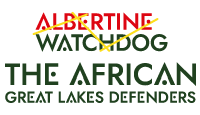Defending Environmental Human rights defenders in Uganda: Reflections from 2019
In 2019, the Ngetha Media Association for Peace, in collaboration with the Navigators of Development Association (NAVODA), the Nebbi District NGO’s forum, and Friends of Zoka Forest (FOZ), provided comprehensive training on risk assessment and security management for Environmental Human rights Defenders across the Albertine region of Uganda. The training took place in several different locations across the Albertine region between the months of March and October 2019. There were a total of sixty environmental human rights defenders from fifteen organizations that took part in the training. These organizations were located in the districts of Buliisa, Hoima, Pakwach, Nwoya, Masindi, Nebbi, Zombo, Arua, Adjumani, Gulu, Kikube, Ntoroko, Nakasongola, and Kiryandongo. Gender considerations were taken very seriously.
These training were a part of Ngetha Media Association for Peace and our on-ground partner organizations and Environmental human rights defenders in the Albertine region of Uganda. They were intended to provide digital and physical security training to improve the safety of EHRDs and organizations in the Albertine region, as well as to enable them to assess the risks to their security and develop appropriate interventions and mitigation measures for the long-term protection of defenders and the environment.
Environmental human rights defenders in the Albertine region lack safety and protection despite the increasing threats and violence they are subjected to from multiple sources as a result of their human rights works and environmental advocacy around the Oil and gas exploration, East Africa Crude Oil Pipeline project, as well as the large-scale agribusiness in the region which are all contributing to large-scale displacement, forced evictions, land grabbing, and violation of human rights. These factors are all contributing to large-scale displacement, and forced eviction.
In the Albertine region of Uganda, the Ngetha Media Association for Peace is extremely concerned about the shrinking civil space and the hostile political, legal, and socio-economic work environment for human rights defenders and organizations. This environment is transitioning into various forms of abuse, including mob attacks, illegal evictions from residential and business premises, media propaganda and blackmailing, digital and physical surveillance, illegal arrests and detention of human rights defenders, judicial harassment and intimidation, and the seizure and theft of office equipment and personal electronic devices, to name just a few examples.
In recent months, the already restrictive working environment in Uganda has rapidly deteriorated, and human rights defenders are even facing a greater threat of physical assault by either motivated actors, from private organizations, government security operatives, and members of the general public. Oil and gas have been discovered in the Albertine region. Additionally, the government has increased the amount of digital surveillance conducted on human rights activists. Environmental human rights defenders are the target of the consequences intensified by the Oil and gas activities, road constructions, and other infrastructural developments which require vast acreages of land, large-scale agribusiness, and the increasing interest in illegal logging as well as a growing demand for illegally harvested timber. The threat to the environment in and around the Albertine region is increasing as a result of oil and gas exploration activities. Human rights violations are spreading throughout the region.
Those who work to protect human rights in Uganda are subject to several challenges and restrictions in their work. Those defenders who are working to combat corruption and protect land rights are particularly vulnerable. Rural human rights defenders, such as print and radio journalists, face an increased risk because they have less access to protections and legal assistance than human rights defenders based in large cities like Kampala. Indigenous people and people living in rural areas in Uganda are the ones most likely to have their human rights violated as a result of fighting for their right to water, their land, and the environment against the government, loggers, road constructors, oil companies, and other members of the extractive industry. Indigenous people also suffer the most human rights violations overall in Uganda.
In the Albertine region of Uganda, the Ngetha Media Association for Peace is performing an essential function by fostering an environment that encourages the protection of environmental human rights activists. Due to the fact that we are the only community-based human rights organization in the Albertine region that operates in underserved areas, we consider the protection of human rights defenders to be an essential component of our overall mission. The Ngetha Media Association for Peace is of the opinion that those who advocate for human rights should be equipped with the appropriate knowledge, skills, and safety tools upon which they can rely in order to carry out their activism work, as well as the capabilities necessary to manage the security risks associated with doing so, with the ultimate goal of continuing to advocate for the rights of others. We will continue to collaborate with our partner organizations, media organizations, the police, and individual environmental human rights defenders, as well as with development partners and the National Civil Society organizations in Uganda, in order to create a more secure working environment for environmental human rights defenders in the Albertine region of Uganda. This will help to ensure that environmental human rights defenders can carry out their jobs without fear of reprisal.
